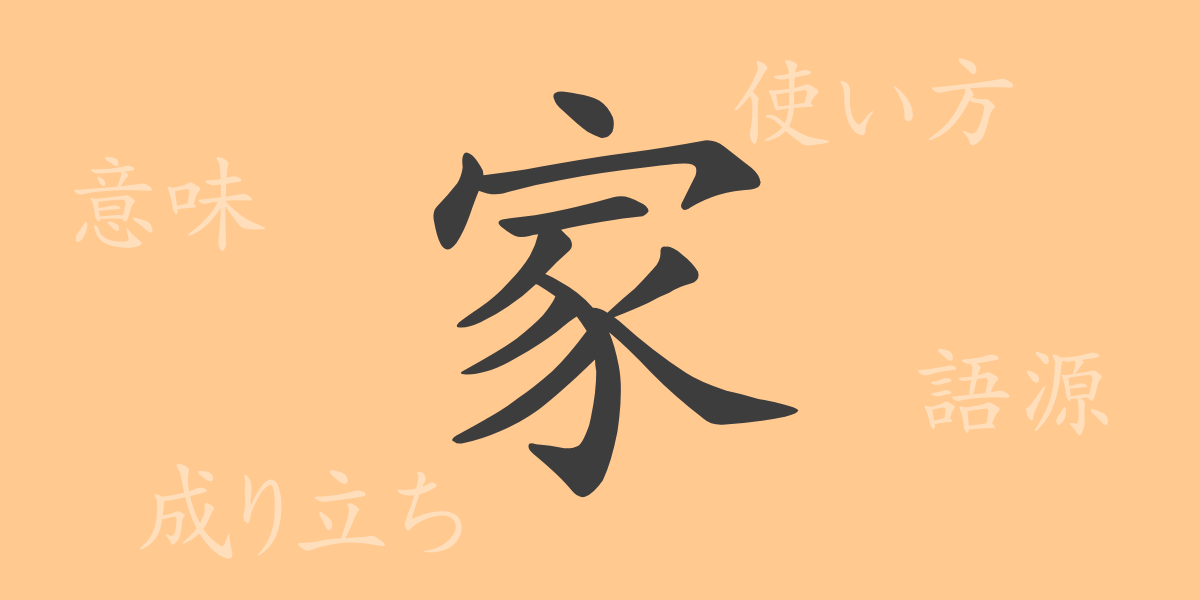The character “家”(ie / ya) represents far more than just a physical building. It embodies culture, history, and a deep-rooted concept in the hearts of the Japanese people. This article explores the origin, meaning, and cultural significance of this profound kanji, shedding light on how it reflects family bonds and social structures in Japan.
Origin of 家 (Ie / Ya) – Etymology
The kanji “家”(ie / ya) originates from ancient Chinese script. It is composed of “宀”(ukanmuri), which represents a roof, and “豕”(inoko), which means pig. In ancient times, pigs were kept as livestock inside homes, and this combination symbolized the house as a central place of life and livelihood. The structure of this character reflects the home’s role as the foundation of daily existence.
Meaning and Usage of 家 (Ie / Ya)
The character “家”(Ie / Ya) refers not only to a physical building but also to the concepts of family, lineage, profession, and household economy. For example, “家族”(kazoku) refers to family by blood, “家業”(kagyō) refers to a family-run business, and “家計”(kakei) indicates the household’s financial situation. These usages show that the kanji “家”(Ie / Ya) is deeply connected to both identity and daily life.
Readings, Stroke Count, and Radical of 家 (Ie / Ya)
The structure and components of “家”(Ie / Ya) reflect its function and meaning:
- Readings: On’yomi : ka; Kun’yomi : ie, ya
- Stroke count: 10 strokes in total
- Radical: “宀”(ukanmuri – “roof” radical)
Common Idioms, Expressions, and Proverbs with 家 (Ie / Ya)
Numerous idioms and expressions in Japanese include the kanji “家”(Ie / Ya), highlighting its cultural relevance. For instance, “家出”(iede) means “to run away from home,” “家宝”(kahō) refers to a treasured family heirloom, and “我が家”(wagaya) is a warm way to refer to one’s own home. The proverb “家に居ても立つ瀬がない”(ie ni ite mo tatsu se ga nai) describes a situation where one has lost status or face even within their own home. These expressions emphasize how integral the concept of home is in Japanese life.
Conclusion on 家 (Ie / Ya)
The kanji “家”(Ie / Ya) carries a wealth of meaning beyond its simple lines. As a symbol of home, family, and culture—and a core element of personal identity—it is deeply rooted in Japanese daily life. A home is not only a safe and secure place, but also a symbol of familial love and unity. The character “家”(Ie / Ya) remains indispensable in expressing one of the most fundamental aspects of human life in Japan.

























